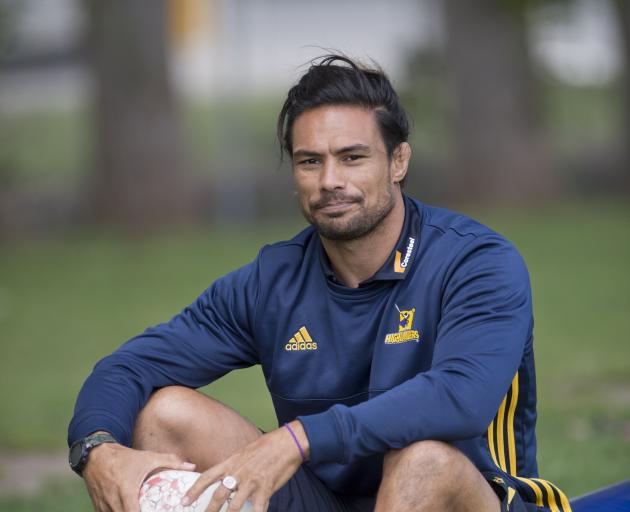Lifestyle
Former Highlander Shane Christie Honored at Heartfelt Farewell

Shane Christie, the former captain of the Tasman Mako and a well-regarded flanker for the Highlanders, was honored by friends, family, and teammates during a funeral service in Nelson on March 15, 2024. Christie passed away unexpectedly at the age of 39, leaving behind a legacy as a courageous leader and a passionate advocate for rugby player welfare.
The Trafalgar Centre was filled with whānau, friends, and former rugby stars who gathered to celebrate Christie’s life. Known for his humility and dedication, he was remembered as someone who “lived his life as if he were in a scrum.” Tasman Mako captain David Havili reflected on Christie’s influence, describing him as the ultimate teammate and a fierce leader. Havili stated, “Your legacy will live on forever at this club. Rest easy, our great mate. Thank you for being you.”
Christie’s struggle with severe post-concussion symptoms began after he retired from professional rugby in 2017. He had openly expressed concerns about his health, believing he was experiencing early symptoms of chronic traumatic encephalopathy (CTE). CTE, which is linked to repeated head trauma, can only be conclusively diagnosed posthumously through brain tissue examination.
In his tribute, Christie’s former girlfriend, Holly Parkes, shared the profound impact of his condition. She described witnessing him suffer from debilitating pain associated with his injuries. “He described it as an electrical circuit board, misfiring,” she recounted, wishing she could have intervened during his playing days. Parkes conveyed her deep sense of loss, stating, “If I could travel back in time… I’d ask him if he knew the value of his mind.”
Christie’s advocacy for player welfare emerged as he sought to better understand the implications of his injuries. Craig Morice, a lawyer who became a close friend, recounted their initial meeting nearly a decade ago when he represented Christie during contract negotiations with New Zealand Rugby (NZR). Morice pushed for urgent medical consultations as Christie’s health deteriorated. A leading neurological specialist ultimately advised that he should not return to rugby.
This prompted Christie to advocate for improved concussion protocols and player safety within the sport. In 2018, he met with senior NZR officials and the New Zealand Rugby Players Association to discuss the need for an independent review of concussion management in rugby. “Shane was adamant that it had to be about those that played alongside him and those that would follow in the future,” Morice recalled.
Despite the release of a comprehensive review containing five recommendations regarding concussion management in April 2019, the findings remain unpublished, a point of frustration for Christie, who felt he had let down his teammates and friends.
In 2023, following the death of his friend and former teammate Billy Guyton, Christie co-founded the Billy Guyton Foundation. This organization aims to raise awareness of brain injuries in rugby and advocate for increased duty of care within the sport. Guyton was notably the first professional rugby player in New Zealand diagnosed with CTE in 2024.
Christie was born on July 23, 1985, in Palmerston North, spending his early years in Canvastown before moving to Wellington. He began his rugby career at the Nelson Rugby Football Club, later making his debut for the Tasman Mako in 2010. Over six years and 73 games, he captained the Mako to its first championship title in 2013 and played a key role in the Highlanders’ 2015 Super Rugby championship.
Beyond rugby, Christie was passionate about various pursuits, including surfing, golf, and travel. His close friend, Craig Moore, emphasized, “Shane’s life was one of passion. Whatever he turned his hand to, he gave everything.”
Christie’s sister, Katrina, expressed her family’s sorrow following his passing, describing it as one of their darkest moments. She noted the outpouring of condolences but also addressed the misinformation surrounding his struggles. “I wish I knew… what the possible outcome was going to be,” she said, reflecting on Christie’s love for the game that brought him immense joy.
As a final tribute to his commitment to advancing understanding of brain injuries in rugby, Christie’s brain has been donated to the New Zealand Sports Human Brain Bank at the Centre for Brain Research in Auckland. His legacy as a player, leader, and advocate for player welfare will continue to resonate within the rugby community for years to come.
-

 World4 months ago
World4 months agoTest Your Knowledge: Take the Herald’s Afternoon Quiz Today
-

 Sports4 months ago
Sports4 months agoPM Faces Backlash from Fans During Netball Trophy Ceremony
-

 Lifestyle4 months ago
Lifestyle4 months agoDunedin Designers Win Top Award at Hokonui Fashion Event
-

 Entertainment4 months ago
Entertainment4 months agoExperience the Excitement of ‘Chief of War’ in Oʻahu
-

 Sports4 months ago
Sports4 months agoLiam Lawson Launches New Era for Racing Bulls with Strong Start
-

 World5 months ago
World5 months agoCoalition Forms to Preserve Māori Wards in Hawke’s Bay
-

 Lifestyle4 months ago
Lifestyle4 months agoDisney Fan Reveals Dress Code Tips for Park Visitors
-

 Health4 months ago
Health4 months agoWalking Faster Offers Major Health Benefits for Older Adults
-

 Politics4 months ago
Politics4 months agoScots Rally with Humor and Music to Protest Trump’s Visit
-

 Top Stories5 months ago
Top Stories5 months agoUK and India Finalize Trade Deal to Boost Economic Ties
-

 Health2 months ago
Health2 months agoRadio Host Jay-Jay Feeney’s Partner Secures Visa to Stay in NZ
-

 World5 months ago
World5 months agoHuntly Begins Water Pipe Flushing to Resolve Brown Water Issue









